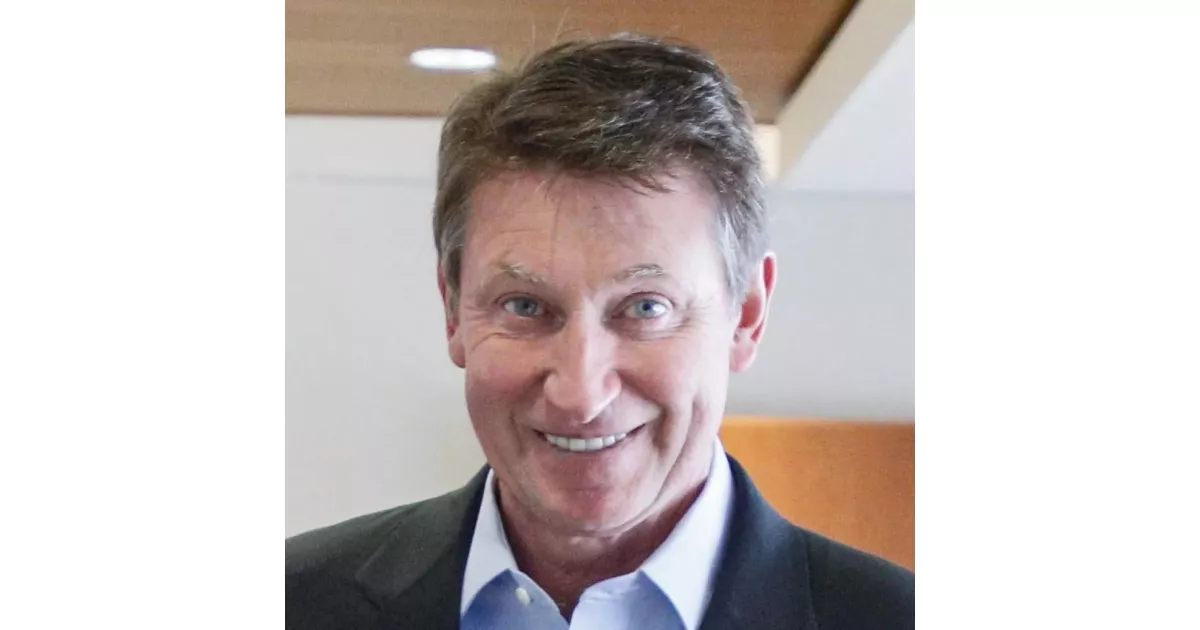Wayne Gretzky, a Canadian former professional ice hockey player, widely regarded as "the Great One," is considered the greatest hockey player ever. He played 20 seasons in the NHL, setting numerous records. Gretzky holds the record for career points and assists, remarkably having more assists than any other player's total career points. He is the only NHL player to surpass 200 points in a single season, achieving this four times and exceeding 100 points in 15 seasons. Upon his retirement in 1999, Gretzky held 61 NHL records, solidifying his legacy as a dominant force in ice hockey.
1944: Richard's 50 in 50 Record
Maurice "Rocket" Richard first set the record of 50 goals in 50 games during the 1944–45 NHL season.
1960: Parents' Marriage
In 1960, Wayne Gretzky's parents, Phyllis Leone (Hockin) and Walter Gretzky, married and lived in an apartment in Brantford.
January 26, 1961: Wayne Gretzky's Birth
On January 26, 1961, Wayne Douglas Gretzky was born. He would grow to become a Canadian former professional ice hockey player and former head coach. He is often called the greatest ice hockey player ever.
1963: Sister Kim Born
In 1963, Wayne Gretzky's sister, Kim, was born.
1967: Order of Canada Appointment Statistics
In 2015, a spokesperson for the Governor General noted that between 1967 and 2015, 467 individuals were appointed as Companions of the Order of Canada, with five uninvested at the time including Wayne Gretzky.
October 1971: Profile in Toronto Telegram
In October 1971, Gretzky's play attracted media attention beyond Brantford, including a profile by John Iaboni in the Toronto Telegram.
1972: Summit Series Impact
Beginning in 1972 with the Summit Series, the Soviet's team style of play, combined with Wayne Gretzky's influence, changed the NHL game, emphasizing team play and individual skill.
1972: WHA Established
In 1972, the World Hockey Association (WHA) was established to compete with the NHL.
1974: Quebec International Pee-Wee Hockey Tournament
In 1974, Gretzky scored 26 points playing for Brantford in the Quebec International Pee-Wee Hockey Tournament.
February 1975: Booed at Maple Leaf Gardens
In February 1975, Gretzky was booed on "Brantford Day" at Toronto's Maple Leaf Gardens, which was a factor in his family's decision to move him to Toronto to play hockey.
1977: Ontario Major Junior Hockey League Draft
In the 1977 Ontario Major Junior Hockey League draft of 16-year-olds, Gretzky was selected third overall by the Sault Ste. Marie Greyhounds, despite his father telling the team that Wayne would not move there.
June 12, 1978: Signed with Indianapolis Racers
On June 12, 1978, Nelson Skalbania, owner of the Indianapolis Racers, signed 17-year-old Gretzky to a seven-year personal services contract worth US$1.75 million.
1978: WHA Merger Discussions
By 1978, the World Hockey Association (WHA) was struggling and seeking a merger with the NHL. Birmingham Bulls owner John F. Bassett sought to sign promising young players like Gretzky to gain leverage over the NHL.
1978: 1978 World Junior Championships
In 1978, Wayne Gretzky made his international debut for the Canadian national junior team at the World Junior Championships in Montreal, Quebec. Despite initial skepticism, Gretzky led the tournament in scoring with 17 points, earning All-Star Team and Best Forward honors, and helped Canada win the bronze medal.
January 26, 1979: Signs 10-year Contract with Oilers
On January 26, 1979, Gretzky's 18th birthday, Pocklington signed him to a ten-year personal services contract worth CA$3 million. Gretzky finished third in the league in scoring and captured the Lou Kaplan Trophy as rookie of the year.
1979: First Season in the NHL
In 1979, Gretzky entered the NHL and, despite being considered too small and slow by critics, he tied for first place in scoring and won the Hart Trophy for the league's most valuable player.
1979: NHL Expansion Agreement
In 1979, the NHL and WHA finalized an agreement where the WHA would fold and four teams, including the Oilers, would join the NHL as expansion franchises. Gretzky was allowed to stay with the Oilers as one of their priority selections.
1979: NHL Debut and Hart Memorial Trophy
In his first NHL season, 1979-80, Gretzky tied for the scoring lead with 137 points and was awarded the Hart Memorial Trophy as the NHL's Most Valuable Player. He was not eligible for the Calder Memorial Trophy due to his previous WHA experience.
1980: Summer Baseball Performance
During the summer of 1980, Wayne Gretzky batted .492 for the Junior Intercounty Baseball League's Brantford CKCP Braves, which led to him being offered a contract by the Toronto Blue Jays.
1980: Exceptional Stamina
In 1980, Wayne Gretzky's exceptional physical stamina was highlighted when an exercise physiologist tested the recuperative abilities of the Edmonton Oilers. Gretzky scored so high that the tester thought the machine was broken.
1980: Bossy ties Richard's record
Mike Bossy tied Maurice Richard's record of 50 goals in 50 games during the 1980–81 NHL season.
December 30, 1981: 50 Goals in 39 Games
On December 30, 1981, Gretzky scored his 50th goal of the 1981-82 season in only 39 games, surpassing the record of 50 goals in 50 games. His 50th goal came in the final seconds of a 7-5 win against the Philadelphia Flyers.
1981: Gretzky leads the NHL in goals scored.
In 1981 Wayne Gretzky led the NHL in goals scored.
1981: 1981 Canada Cup
In 1981, Gretzky debuted with the Canadian national team at the Canada Cup, leading the tournament in scoring with 12 points. However, Canada lost to the Soviet Union in the final, finishing in second place.
1981: Art Ross Trophy and Playoff Record
In 1981, Gretzky won the Art Ross Trophy with a record 164 points and his second straight Hart Trophy. In the first game of the 1981 Stanley Cup playoffs, he had five assists, setting a single-game playoff record.
1981: Single-Season Scoring Record
In 1981, Gretzky, weighing just 165 pounds, broke the previous single-season scoring record, racking up 164 points in the NHL.
February 24, 1982: Breaks Esposito's Goal Record
On February 24, 1982, Gretzky broke Phil Esposito's record for most goals in a season (76), scoring three to help defeat the Buffalo Sabres 6–3.
1982: Oilers' Offensive Prowess
From 1982, the Edmonton Oilers averaged 423 goals a season, a feat never before achieved, with Wayne Gretzky averaging 207 points, far exceeding previous records.
1982: Breaks Assists Record
In the 1982-83 season, Gretzky broke his own assists record with 125 assists.
1983: Oilers in Stanley Cup Finals
In 1983, the Edmonton Oilers, with Wayne Gretzky as captain, reached the Stanley Cup Finals but were swept by the New York Islanders.
1984: Edmonton Oilers success
In 1984 The Edmonton Oilers team, was later voted the greatest NHL team ever, as part of the NHL's centennial celebrations.
1984: Breaks Assists Record
In the 1984-85 season, Gretzky broke his own assists record with 135 assists.
June 1985: NHL Introduces Offsetting Penalties
In June 1985, the NHL Board of Governors implemented offsetting penalties, meaning neither team lost a player when coincidental penalties were called. This change, known as "the Gretzky rule", was criticized by Gretzky for punishing teams that benefited from open ice situations.
1985: Oilers' Offensive Prowess
By 1985, the Edmonton Oilers had averaged 423 goals a season, a feat never before achieved, with Wayne Gretzky averaging 207 points, far exceeding previous records.
1985: Oilers Win Stanley Cup
In 1985, Wayne Gretzky and the Edmonton Oilers won the Stanley Cup, adding to their previous victory.
1985: Breaks Assists Record
In the 1985-86 season, Gretzky broke his own assists record with 163 assists.
1986: Gretzky leads the NHL in goals scored.
In 1986 Wayne Gretzky led the NHL in goals scored.
1986: Breaks Points Record
In the 1985-86 season, Gretzky broke his own points record with 215 points.
1987: Gretzky's Contract Restructured
In 1987, Wayne Gretzky and Oilers owner Peter Pocklington agreed to replace Gretzky's personal services contract with a standard NHL contract, addressing concerns about the contract's use as collateral and Gretzky's growing dissatisfaction.
1987: 1987 Canada Cup
In 1987, Wayne Gretzky considered the Canada Cup the best hockey he played in his life. He played on a line with Mario Lemieux and recorded a tournament-best 21 points in nine games, leading Canada to victory against the Soviets in a memorable three-game final series.
1987: Oilers Win Stanley Cup
In 1987, Wayne Gretzky led the Edmonton Oilers to another Stanley Cup victory.
August 9, 1988: Trade to Los Angeles Kings
On August 9, 1988, Gretzky was traded to the Los Angeles Kings. This trade had an immediate impact on the team's performance, eventually leading them to the 1993 Stanley Cup Finals, and is credited with popularizing hockey in California.
1988: Trade to the Los Angeles Kings
In 1988, Gretzky was traded to the Los Angeles Kings along with Marty McSorley, who continued to play the role of protecting Gretzky on the ice.
1988: Oilers Win Stanley Cup
In 1988, Wayne Gretzky and the Edmonton Oilers secured another Stanley Cup win.
1988: Gretzky's Return to Edmonton
In 1988, Wayne Gretzky made his first appearance in Edmonton after being traded, receiving a four-minute standing ovation. A life-sized bronze statue of Gretzky holding the Stanley Cup was erected outside Northlands Coliseum after the 1988-89 season.
1988: Gretzky's Captaincy Ends
In 1988, Wayne Gretzky's tenure as the captain of the Edmonton Oilers came to an end.
1988: Oilers Plan to Trade Gretzky
In 1988, shortly after winning the Stanley Cup, Wayne Gretzky learned of the Oilers' plan to trade him, driven by owner Peter Pocklington's financial needs. Gretzky was eventually traded to the Los Angeles Kings after negotiations and his request to bring teammates Marty McSorley and Mike Krushelnyski with him.
1989: First-Round Draft Pick
In 1989, as part of the trade that sent Wayne Gretzky to the Los Angeles Kings, the Oilers received the Kings' first-round draft pick, which they later traded to the New Jersey Devils. The Devils used the pick to select Jason Miller.
1990: Gretzky Named Athlete of the Decade
In 1990, Wayne Gretzky was named Male Athlete of the Decade by the Associated Press. The Oilers, without Gretzky, won their fifth Stanley Cup, which Mark Messier dedicated to him.
1990: Assists Record
In the 1990-91 season, Gretzky had 122 assists.
1991: 1991 Canada Cup
In 1991, Wayne Gretzky led the Canada Cup for the fourth and final time with 12 points, but missed the final against the United States due to a back injury. Canada won the tournament.
1991: First-Round Draft Pick
In 1991, as part of the trade that sent Wayne Gretzky to the Los Angeles Kings, the Oilers received the Kings' first-round draft pick, which they used to select Martin Ručinský.
1992: Gretzky's Point Streak Ends
In 1992, Wayne Gretzky's 65-point output ended his 13-year streak of recording at least 100 points each season.
1992: "The Gretzky Rule" Reversed
In 1992, the NHL reversed the offsetting penalties rule (nicknamed "the Gretzky rule") that had been introduced in June 1985, by which time most of the players from the dominant Edmonton Oilers team had moved on.
January 6, 1993: Gretzky's 1,000th NHL Game
On January 6, 1993, Wayne Gretzky returned from a back injury to play his 1,000th NHL game.
1993: First-Round Draft Pick
In 1993, as part of the trade that sent Wayne Gretzky to the Los Angeles Kings, the Oilers received the Kings' first-round draft pick, which they used to select Nick Stajduhar.
1994: McNall Forced to Sell Kings
In 1994, due to financial troubles, Bruce McNall was forced to sell the Los Angeles Kings, straining Wayne Gretzky's relationship with the new ownership.
February 27, 1996: Gretzky Traded to St. Louis Blues
On February 27, 1996, Wayne Gretzky was traded to the St. Louis Blues for Patrice Tardif, Roman Vopat, Craig Johnson, and two draft picks. He was named the team's captain and scored 37 points in 31 games.
1996: Gretzky joins the New York Rangers
In 1996, Wayne Gretzky ended his time with the Blues and signed with the New York Rangers where he played his final three seasons.
1996: Gretzky Vancouver Canucks deal called off
In 1996, Wayne Gretzky was going to sign with the Vancouver Canucks however the deal was called off after Canucks president and general manager Pat Quinn was ordered to call and demand that Gretzky sign that same night, due to Gretzky not liking the Canucks' pushiness.
1996: 1996 World Cup
In 1996, the Canada Cup was revived and renamed the World Cup. Gretzky, with seven points in eight games, finished fourth in tournament scoring.
1996: Gretzky Requests a Trade
In early 1996, Wayne Gretzky requested a trade from the Los Angeles Kings due to the team's financial instability and strained relationships with the new owners.
November 29, 1997: Named to Canadian Olympic Team
On November 29, 1997, Gretzky was named to the Canadian national team for the 1998 Winter Olympics in Nagano, Japan, which would be the first time NHL players were eligible to participate.
1997: Gretzky Ranked as Greatest NHL Player
In 1997, The Hockey News ranked Wayne Gretzky as the greatest player in NHL history based on a vote by 50 hockey experts.
1997: Rangers Reach Conference Finals
In 1997, Wayne Gretzky helped the New York Rangers reach the Eastern Conference Finals, where they were defeated by the Philadelphia Flyers.
1998: Gretzky Leads in Assists
During the 1997-98 season, Wayne Gretzky topped the NHL with 67 assists, marking the 16th time in 19 seasons he led the league in this statistic.
1998: Gretzky breaks professional goal-scoring record
In 1998 Wayne Gretzky broke the professional total goal-scoring record of 1,071, which Gordie Howe had held. Gretzky's last goal brought his scoring total for his combined NHL/WHA career to 1,072, one more than Howe.
1998: 1998 Winter Olympics
In 1998, Wayne Gretzky participated in the Winter Olympics in Nagano, Japan, where the Canadian team lost to the Czech Republic in the semi-finals. Gretzky was controversially not selected for the shootout. Canada lost the bronze medal game and finished without a medal. This marked Gretzky's final international appearance.
1998: Kings Miss Playoffs
In 1998, the Los Angeles Kings finally qualified for the playoffs after a long drought, a slide that began after Wayne Gretzky's departure.
1998: 1998 Olympics in Japan
Wayne Gretzky's ability to improvise came into the spotlight at the 1998 Olympics in Japan, even though he was an older player in the sunset of his career, and had been passed over for the captaincy of the team. As the series continued, his unique skills made him a team leader.
April 15, 1999: Gretzky's Last Game in Canada
On April 15, 1999, Wayne Gretzky played his last NHL game in Canada, a 2–2 tie against the Ottawa Senators. He was awarded all three stars of the game in a special ceremony.
April 18, 1999: Final Game
On April 18, 1999, Wayne Gretzky played the final game of his NHL career, which resulted in a 2–1 overtime loss to the Pittsburgh Penguins at Madison Square Garden. Both the Canadian and American national anthems were played, with altered lyrics to honor Gretzky. Gretzky recorded an assist, his final point, on Brian Leetch's goal.
August 1999: Honorary Chairman of the Open Ice Summit
In August 1999, Gretzky was named honorary chairman of the Open Ice Summit to discuss improving Canadian ice hockey. He emphasized playing and practicing for the love of the game, prioritizing skill development over talent, and aiming for Canada to lead in skill development.
October 1999: Wayne Gretzky Drive
In October 1999, the city of Edmonton honored Wayne Gretzky by renaming Capilano Drive, a major freeway near Northlands Coliseum, to Wayne Gretzky Drive. A rush-hour bus route No. 99 was also assigned to run on the renamed drive.
November 22, 1999: Induction into the Hockey Hall of Fame
On November 22, 1999, Wayne Gretzky was inducted into the Hockey Hall of Fame, bypassing the three-year waiting period. He was the tenth and last player to do so.
1999: Induction into Hockey Hall of Fame
After his retirement in 1999, Gretzky was immediately inducted into the Hockey Hall of Fame, waiving the waiting period. The NHL retired his jersey number 99 league-wide.
May 2000: Phoenix Coyotes Ownership Stake
In May 2000, Wayne Gretzky agreed to buy a 10% stake in the Phoenix Coyotes, becoming alternate governor, managing partner, and head of hockey operations, partnering with Steve Ellman to avert a move to Portland, Oregon.
2000: Part-Owner of Phoenix Coyotes and IIHF Hall of Fame Induction
In 2000, Gretzky became part-owner of the Phoenix Coyotes. He was also inducted into the IIHF Hall of Fame in 2000.
2000: Jersey Number Retired
In 2000, Gretzky was inducted into the IIHF Hall of Fame. His jersey number 99 was retired league-wide at the 2000 NHL All-Star Game, inspired by Major League Baseball's retirement of Jackie Robinson's number 42.
February 15, 2001: Sale of the Phoenix Coyotes Completed
On February 15, 2001, after missed deadlines and securing partners, the sale of the Phoenix Coyotes was completed, with Steve Ellman and Wayne Gretzky taking over ownership with the addition of Jerry Moyes.
2002: Executive Director for Canadian National Team
In 2002, Gretzky became the executive director for the Canadian national men's hockey team during the Winter Olympics, in which the team won a gold medal.
2002: Jersey Retirement and Statue
In 2002, the Los Angeles Kings held a jersey retirement ceremony for Wayne Gretzky and erected a life-sized statue of him outside the Staples Center. Gretzky also received a star on Canada's Walk of Fame in Toronto.
2003: Phoenix Coyotes Season
In the 2003-2004 NHL season, before Gretzky took over as coach, the Phoenix Coyotes had a poor performance. Following the 2004-2005 NHL Lockout, he would improve the team's performance by 16 wins.
2004: Brantford Walk of Fame
In 2004, Gretzky was inducted into Brantford's "Walk of Fame".
2004: Inducted into the Ontario Sports Hall of Fame
In 2004, Gretzky was inducted into the Ontario Sports Hall of Fame.
August 8, 2005: Named Head Coach of the Coyotes
On August 8, 2005, Wayne Gretzky agreed to become the head coach of the Phoenix Coyotes.
May 31, 2006: Five-Year Contract as Head Coach
On May 31, 2006, Wayne Gretzky agreed to a five-year contract to remain head coach of the Phoenix Coyotes.
2006: Rangers Return to Playoffs
In 2006, The New York Rangers returned to the playoffs, well after Wayne Gretzky retired.
May 5, 2009: Coyotes File for Bankruptcy
On May 5, 2009, the Phoenix Coyotes' holding company, Dewey Ranch Hockey LLC, filed for Chapter 11 bankruptcy, leading to an ownership dispute and uncertainty about Gretzky's role.
September 2009: Resignation from Phoenix Coyotes
In September 2009, following the Phoenix Coyotes' bankruptcy, Gretzky resigned as head coach and relinquished his ownership share.
September 24, 2009: Gretzky Steps Down as Coyotes Coach
On September 24, 2009, Wayne Gretzky stepped down as head coach and head of hockey operations of the Phoenix Coyotes due to an uncertain contractual status amid the team's bankruptcy hearings.
May 10, 2010: The Ambassador Award of Excellence
On May 10, 2010, Gretzky was awarded The Ambassador Award of Excellence by the LA Sports & Entertainment Commission.
2015: Scheduling Conflicts for Investiture
In 2015, Wayne Gretzky's agent cited scheduling difficulties as the reason for his non-attendance at the Order of Canada investiture. He had been in Canada for other events during the past fifteen years.
2015: Attempts to Arrange Investiture
In 2015, a spokesperson for the Governor General's office confirmed attempts to arrange an investiture for Wayne Gretzky. Between 1967 and 2015, 467 individuals had been appointed as Companions of the Order of Canada.
October 2016: Returns to the Oilers
In October 2016, Gretzky returned to the Oilers as a minority partner and vice-chairman of their parent company, Oilers Entertainment Group.
2017: One of the 100 Greatest NHL Players
In 2017, Wayne Gretzky was named one of the 100 Greatest NHL Players.
2021: Analyst on Turner Sports
In 2021, Gretzky left the Oilers Entertainment Group to become an analyst on Turner Sports' NHL coverage.
2025: Absence from Order of Canada Investiture
As of 2025, Wayne Gretzky had not attended the investiture in Ottawa to be appointed as a Companion of the Order of Canada. His agent mentioned in 2015 scheduling difficulties.
Mentioned in this timeline
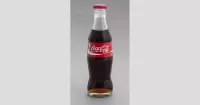
Coca-Cola is a globally recognized cola soft drink produced by...
Ukraine is a country in Eastern Europe the second-largest on...

George W Bush the rd U S President - is...
California is a U S state on the Pacific Coast...
Saturday Night Live SNL is a late-night live sketch comedy...
The Union of Soviet Socialist Republics USSR existed from to...
Trending

46 minutes ago Jessica Pegula faces Varvara Gracheva in Dubai Tennis Championships second round.

23 hours ago Clara Tauson Faces Sofia Kenin at WTA Dubai: Predictions and Betting Odds
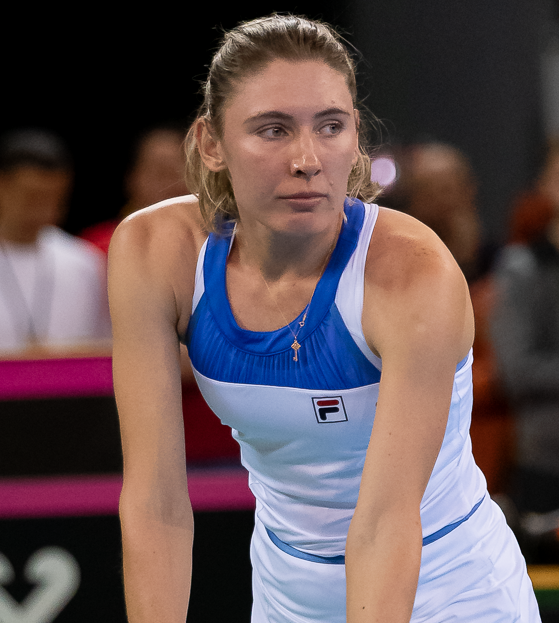
47 minutes ago Coco Gauff anticipates Dubai struggles, faces Kalinskaya; Alexandrova trending in WTA Dubai.
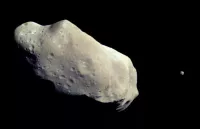
47 minutes ago NASA Warns of Undetected City-Killer Asteroids Posing Threat to Earth
3 hours ago Canada vs New Zealand T20 World Cup 2026: Thrill, Live Scores, and Game Updates.
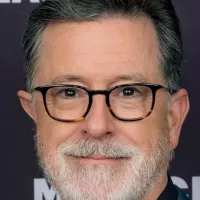
8 months ago Zohran Mamdani's success highlights Jewish divide; Israelis fear New York threat after Iran missiles.
Popular
Randall Adam Fine is an American politician a Republican who...

Pam Bondi is an American attorney lobbyist and politician currently...

Kid Rock born Robert James Ritchie is an American musician...

Barack Obama the th U S President - was the...
The Winter Olympic Games a major international multi-sport event held...

XXXTentacion born Jahseh Dwayne Ricardo Onfroy was a controversial yet...
